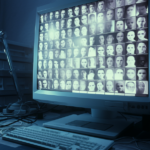
The University of Memphis Research Foundation (UMRF) has announced they have licensed their patented multi-factor authentication (MFA) system to i2Chain, a Silicon Valley cybersecurity startup.
While most MFA methods require the user to provide at least two differing elements to verify their identity — often a combination of a PIN, password, smart card, or biometrics — the system, invented by U of M computer science professor Dr. Dipankar Dasgupta, uses machine learning to change the methods of authentication required based on different factors such as the type of device being used and the user’s location and environment.
“If you’re in Starbucks, voice authentication will not be used,” Dr. Dasgupta said. “If there’s low light, facial recognition will not be used. The way to be checked is not in user control.”
This constant adjusting of the authentication methods should, in theory, make it more difficult for hackers to break into a device since they won’t know what type of authentication will be requested during any given log-in attempt. If the operating conditions do in fact remain the same for multiple attempts, the machine learning model will automatically shift the authentication method to avoid any predictable repetition.
Another way the UMRF system differentiates itself from other MFA methods is its use of both active and passive authentication, in which the user’s identity is constantly being verified even without them knowing it.
i2Chain will reportedly use the UMRF system in its own existing solutions, and offer the product as a service to other identity solutions providers.
In speaking of their decision to license their technology to i2Chain, Hai Trieu, the director of the office of tech transfer at the U of M, said, “We wanted to find a company who was capable, i2Chain happened to be very qualified. They could start something innovative and do something very different.”
The university was also attracted to i2Chain because, as a startup, they felt they would actually find a use for it, as opposed to a larger company who might be tempted to acquire the license only to shelve it to simply keep it off the market for competitors.
“We don’t want a company that will throw money at us but license it just so it won’t compete,” Trieu said.
As part of the licensing deal, the U of M will receive a percentage of the profits, which they say will be used to fund future research projects at the university.
Source: Memphis Business Journal
–
November 28, 2019 – by Tony Bitzionis







Follow Us